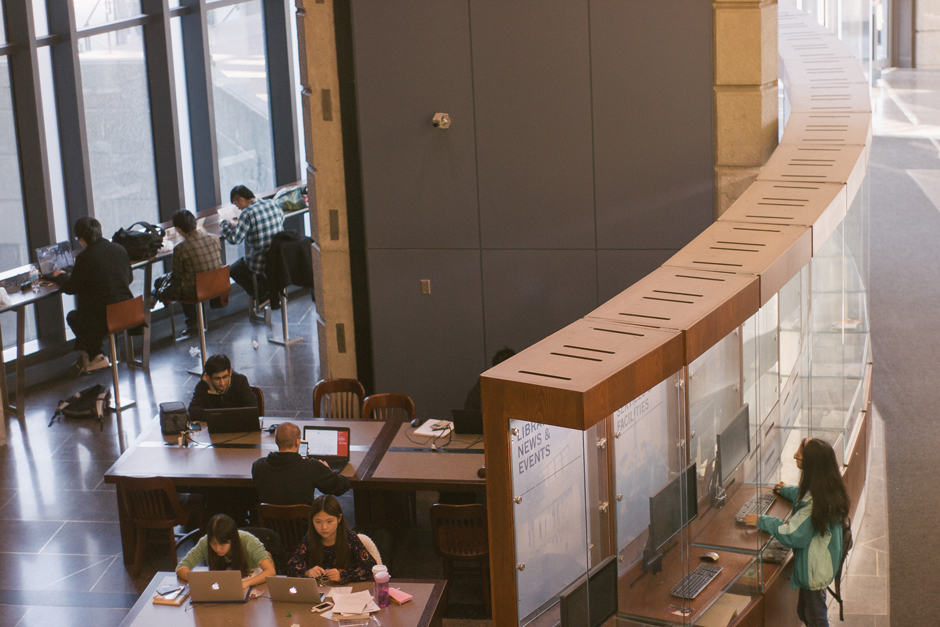In recent years, copyright regulations have been under fire for creating costly barriers to published materials and for lack of adaptability to changing technologies. In 2012, amendments to Canada’s Copyright Act saw the Supreme Court expand their definition of fair copyright practices to include research, private study, education, parody, and satire.
The revision allowed educators to share short excerpts with their students. A short excerpt may include up to 10 per cent of a copyright-protected work, one chapter of a book, one article, a single poem or musical score, or a full entry from a work of reference such as an encyclopedia.
This expanded definition has resulted in a conflict of interest between Canadian universities and Access Copyright, a not-for-profit organization representing authors and publishers.
There is a worldwide movement to make academic journals more accessible to researchers by fostering discussion around the benefits of easy, free access to published works.
One such movement is Open Access Week, an international event dedicated to informing the public on transparency in academia. The University of Toronto held a series of information sessions, film screenings, and symposiums as part of the week.
Kicking-Off “Generation Open”
The World Bank and the Scholarly Publishing and Academic Resources Coalition hosted the university’s kick-off event last week.
The theme for this year’s Open Access event was Generation Open. According to the 2011 census conducted by Statistics Canada, millennials make up nearly 27 per cent of the Canadian population.
The event was live streamed on the World Bank’s website and hosted by Meredith Niles, a post-doctorate research fellow at Harvard University. In the opening remarks, Niles spoke of several organizations participating in the event across dozens of campuses, including Open Access Nepal and Open Access Nigeria.
There was a particular focus on early career researchers and students, with topics on the support roles of institutions and how open access relates to young scholars throughout their career paths.
José-Marie Griffiths, a panelist who serves as vice-president for academic affairs at Bryant University, said that institutional mindsets are slow to change and highlighted the leadership role that young people can have. “Early career researchers will push, and need to push, to educate broader communities about the issues and environment that we are living in today,” Griffiths said.
The sessions also focused on the influence early career researchers can have on the future development of published research.
“As future leaders, [early researchers] hold the power to shape what publishing in academia will become, so educating younger generations on their options in publishing new research and what academia could look like in the future with a more open and inclusive academic environment could enable them to make a huge impact,” said Nelly Cancilla, copyright outreach librarian at the University of Toronto.
Plugged in
In keeping with the youthful theme of the event, social media tools were used to promote Open Access 2014. Twitter users live-tweeted the kick-off webcast, posting their questions and comments in 140 characters or less with hashtag #OA. Facebook events were created to communicate various event details, and Instagram users were invited to share their experiences via photos.
Also promoting Open Access is a new free app, Open Access Button. The app was created in November 2013 by a group of volunteer students and researchers frustrated by the copyright restrictions inhibiting them from accessing journals for their own research. The app searches the web for free academic journals so the user can avoid paywalls and aims to create free copies where they don’t yet exist.
“The purpose of the theme, Generation Open, is to stress the importance for young researchers or future researchers to become aware of and get involved in the issues regarding publishing and access,” said Cancilla.
Access Denied
In 2013, U of T failed to renew its copyright license with Access Copyright, citing an “inability to secure a license at a reasonable price.” The university now acts independently of Access Copyright in its copyright dealings.
While the licence cost students $27.50, an annual fee they no longer have to pay, some students reported a significant increase in the price of course packs since the cancellation of the licence agreement.
Access Copyright has challenged the amendments to the Copyright Act, most notably through a lawsuit filed against York University in 2013. The outcome of the lawsuit will affect how higher learning institutions are able to implement the recently adopted fair dealings guidelines, something that the University of Toronto is monitoring.
“I’m not in the position to comment too broadly on the ongoing litigation, but I will say that the case is certainly important and we are keeping our eyes open,” said Bobby Glushko, U of T Scholarly Communications and Copyright Librarian.


